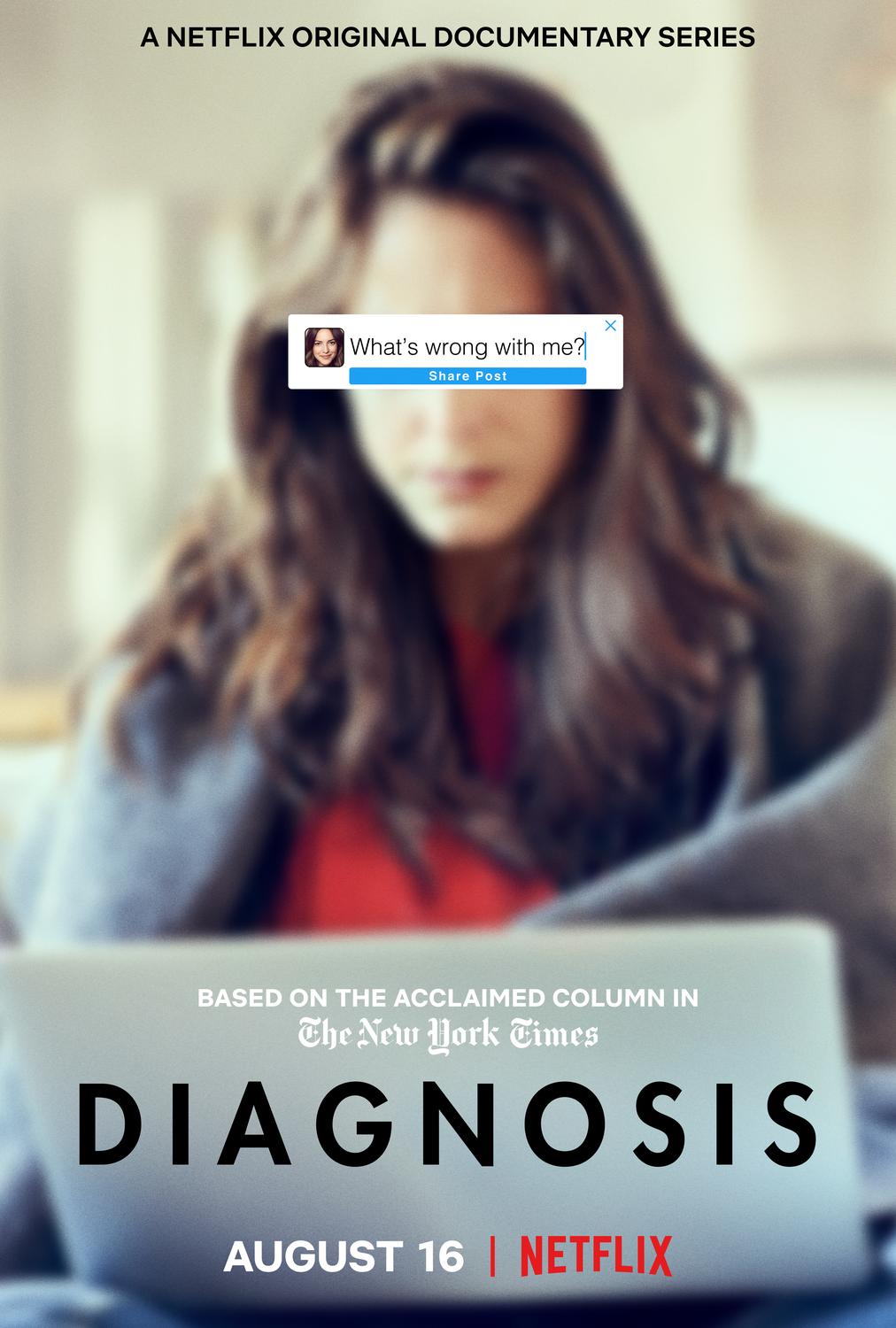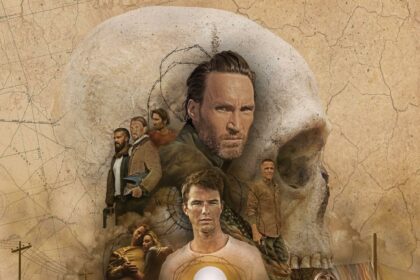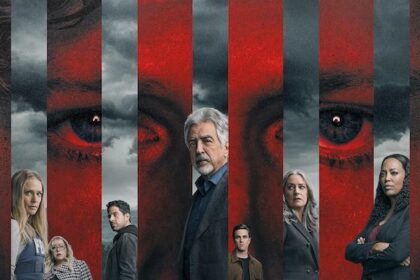
🪶 Story & Synopsis
Dr. Lisa Sanders takes center stage in the captivating 2019 documentary television series “Diagnosis”. The show delves into the world of rare illnesses as Dr. Sanders embarks on a mission to diagnose and cure patients using innovative wisdom of the crowd methods. Based on her renowned column for The New York Times Magazine, the series premiered on Netflix on August 16, 2019, offering viewers a unique glimpse into the challenges of diagnosing uncommon medical conditions.
The heart of the show lies in the compelling stories of patients grappling with mysterious illnesses. Each episode unfolds a new case, with the first installment focusing on Angel’s journey. To enhance the viewing experience, diving into Dr. Lisa Sanders’ original column in The New York Times is recommended, allowing audiences to gain deeper insights into the complexities of medical diagnostics.
As the series progresses, viewers are drawn into the intricate world of medical mysteries, where Dr. Sanders harnesses the power of crowdsourcing to unravel complex cases. Through a blend of medical history, physical examinations, and diagnostic procedures, the show sheds light on the intricate process of identifying and treating diseases.
With a total of seven episodes, “Diagnosis” offers a poignant and enlightening exploration of the challenges faced by individuals with rare illnesses. From the emotional rollercoaster of uncertainty to the hope of finding a cure, each episode captures the resilience and determination of both patients and medical professionals.
For those intrigued by the realm of diagnostics, “Diagnosis” serves as a compelling gateway into the world of rare diseases and the relentless pursuit of answers. The series not only educates but also inspires, showcasing the unwavering dedication of Dr. Lisa Sanders and her team in their quest to bring healing and closure to those in need.
🧑 Cast & Crew
Lisa Sanders
| Actor | Role |
|---|---|
| Dr. Lisa Sanders | Herself |
💬 Reviews and feedback
Are you ready to dive into the captivating world of medical mysteries and human resilience? Well, grab your popcorn and stethoscope because we’re about to dissect the Netflix series, Diagnosis! Just like a skilled surgeon, this show cuts through the mundane and delves into the extraordinary.
From the first episode featuring Angel’s story to Joe’s unexpected medical journey, each installment of Diagnosis is a rollercoaster of emotions. It’s like a medical version of Sherlock Holmes meets Grey’s Anatomy, leaving you on the edge of your seat with each diagnosis revealed.
Plot and Themes:
Diagnosis isn’t your typical medical mystery show. It goes beyond just identifying symptoms and diseases; it delves deep into the raw emotions and struggles faced by individuals battling rare and unusual conditions. The series beautifully captures the essence of hope, resilience, and the unwavering human spirit in the face of adversity.
Acting and Characters:
The real stars of Diagnosis are not actors but real-life heroes battling against all odds. From Angel’s determination to keep living life to the fullest despite her condition to Joe’s courage in facing a life-altering diagnosis, each character shines with authenticity and vulnerability. Dr. Lisa Sanders’ compassionate approach to crowdsourcing diagnoses adds an element of humanity that resonates deeply with viewers.
Direction, Cinematography, and Production Design:
The direction in Diagnosis is top-notch, seamlessly weaving together medical expertise with personal narratives. The cinematography captures both the stark reality of medical challenges and the moments of triumph with equal finesse. The production design creates an immersive experience, transporting viewers into the shoes of those seeking answers to their health mysteries.
Special Effects and Editing:
While Diagnosis may not rely heavily on CGI or flashy effects, its impact lies in its storytelling prowess. The editing is crisp and keeps you engaged throughout each episode, unraveling the layers of each case with precision. The special effects here are not explosions or car chases but rather the emotional resonance that lingers long after the credits roll.
Pace and Dialog:
The pace of Diagnosis is akin to a heartbeat – steady yet pulsating with anticipation. Each dialog is carefully crafted to evoke empathy, understanding, and sometimes even tears. The conversations between Dr. Sanders and her patients feel authentic and heartfelt, making you root for every individual seeking answers.
Binge-Watching Tips:
- Have tissues handy – you might shed a tear or two witnessing the emotional journeys.
- Engage with others while watching – discussing each case adds another layer of depth to your viewing experience.
- Follow Dr. Lisa Sanders’ work outside the show for more incredible medical insights.
If you’re a fan of shows that tug at your heartstrings while expanding your knowledge about rare medical conditions, then Diagnosis is a must-watch! So grab your lab coat (or comfy pajamas) and immerse yourself in this compelling series that celebrates human resilience amidst health challenges.
Rating: 9/10
In conclusion, Diagnosis isn’t just a TV show; it’s a testament to the strength of the human spirit in facing life’s greatest uncertainties. So next time you feel like life has thrown you a curveball, remember Angel running around with her babies or Joe overcoming his medical setbacks – because if they can find hope in their darkest hours, so can you!
| Pros | Cons |
|---|---|
| Delves into the world of medicine | Some viewers may find the structure repetitive |
| Raw emotions and struggles of people with rare conditions | First episode may not sit well with all viewers |
| Uplifting and respectful portrayal of subjects | Focuses on illnesses that disrupt day-to-day lives |
| Crowdsourcing diagnoses adds an engaging element | Not a typical medical mystery show |
| Empathetic approach to storytelling | Some cases may be unsettling for sensitive viewers |
Feedback
-
Diagnosis (American TV series) - Wikipedia
This article’s plot summary
may be too long or excessively detailed.(November 2020)
Diagnosisis a 2019 documentary television series. The series follows Dr. Lisa Sanders as she attempts to help patients with rare illnesses and searches for a diagnosis and cure using wisdom of the crowd methods. The show is based on her column forThe New York Times Magazine. It was released on August 16, 2019, on Netflix.
-
Diagnosis (TV Mini Series 2019) - IMDb
SPONSORED
Diagnosis
- TV Mini Series
- 2019
Medical docuseries focusing on patients with unique illnesses and their journeys to find a diagnosis and cure.Medical docuseries focusing on patients with unique illnesses and their journeys to find a diagnosis and cure.Medical docuseries focusing on patients with unique illnesses and their journeys to find a diagnosis and cure.Browse episodesSPONSOREDFeatured reviewEye opener and inspiring
-
'Diagnosis' on Netflix: Where Are the Patients Now? | Decider
If you love shows about medical mysteries, then you no doubt spent the weekend bingeing Netflix’s new docu-seriesDiagnosis. The show comes fromThe New York Timesand Dr. Lisa Sanders, the physician whose newspaper column inspired the Hugh Laurie medical dramaHouse. In it, Sanders speaks to people with mysterious, sometimes life-threatening illnesses and puts their symptoms out to a massive audience in the hopes of finding a diagnosis.
-
Diagnosis: From The New York Times Column - YouTube
⚠️ Explanation (Spoiler)
In the gripping final episode of Netflix’s documentary series “Diagnosis,” Season 1, Episode 7 titled “Paralyzed,” viewers are introduced to two patients facing different forms of paralysis: Joe, a 61-year-old man with paraplegia from the waist down, and Ann, a 44-year-old woman experiencing unpredictable paralysis on the right side of her body.
Joe, the textbook “good patient,” had his paralysis progress slowly from his legs upwards. After numerous scans, no definitive diagnosis could explain his condition. However, it is revealed that Joe was diagnosed with blood cancer and had been prescribed Ibrutinib, a medication known for its side effects. Interestingly, after being off Ibrutinib due to a blood clot issue, Joe starts regaining feeling in his toes, hinting at a possible correlation between the medication and his paralysis. His doctor suggests he can stay off Ibrutinib longer, although the medical community does not acknowledge the loss of feeling in legs as a side effect.
On the other hand, Ann’s story sheds light on the challenges faced by African American women in the medical field. She has been through countless inconclusive diagnoses, leading to frustration and skepticism towards healthcare professionals. Through crowdsourcing, two potential conditions are highlighted: Lyme disease, which is ruled out, and Functional Neurological Disorder. Ann is reluctant to accept the latter due to the stigma associated with functional diseases, fearing she will be labeled as a “crazy African American woman.” However, with the help of Dr. Lisa Sanders, she learns about the progress being made in understanding and treating Functional Neurological Disorder.
The episode showcases the complexities of Functional Neurological Disorder, where bodily functions may appear normal but are not working as they should. Ann’s journey includes a conversation with a young woman who has successfully overcome the disorder, offering hope for her own situation. Despite this ray of hope, Ann decides to search for answers independently, leaving her story open-ended.
As the episode concludes, Joe experiences a positive turn as he begins to regain feeling in his legs, indicating a potential full recovery within a year or longer. Dr. Lisa Sanders reflects on the success of crowdsourcing in providing valuable insights and potential diagnoses for patients like Joe and Ann. She emphasizes the importance of collaborative efforts in achieving comprehensive and accurate medical evaluations, hinting at the future potential of this approach in healthcare.
“Diagnosis” Season 1, Episode 7, “Paralyzed,” serves as a thought-provoking conclusion to the series, exploring the challenges and triumphs of patients grappling with paralysis. The episode not only delves into the medical mysteries surrounding Joe and Ann but also highlights the significance of patient advocacy, community support, and innovative approaches to diagnosis in the evolving landscape of healthcare.
👪 Parents Guide & Age Rating
TV-14
Age Rating:
Diagnosis TV Show has a TV-14 maturity rating. This means the show is suitable for viewers aged 14 and above. Parental guidance is advised, as the content may contain some material that is inappropriate for children under 14.
Parental Guide:
Diagnosis is a medical documentary TV show that follows individuals suffering from rare illnesses that impact their daily lives. The subjects range from adults to teens and young children, showcasing symptoms like seizures, vomiting, bleeding, and more. While the show focuses on the journey to diagnosis and treatment, it may contain unsettling visuals related to medical conditions.
Parents should be aware that the show may include scenes of blood, fatal wounds, and corpses, albeit presented in a less intense manner compared to contemporary primetime standards. The violence is often depicted with a lighthearted and somewhat hokey feel, which may help mitigate the impact on viewers.
Given the nature of the medical conditions depicted, parents should consider the sensitivity of their children to such content before allowing them to watch Diagnosis. It is recommended for viewers aged 14 and above due to the mature themes and medical imagery portrayed throughout the series.
📺 Streaming and where to watch
| streaming service | extra information |
|---|---|
| Netflix | Diagnosis TV show is available for streaming on Netflix. Dr. Lisa Sanders crowdsources diagnoses for mysterious and rare medical conditions in this documentary series. |
| Netflix | Diagnosis TV show is also available for streaming on Netflix. As emotional as it is illuminating, Diagnosis deep dives into the lives of patients navigating complicated health care systems. |
❝ Quotes and Cult
I had my own sort of hopes and expectations, but this actually is more than I had hoped for.
What I want to know is what's causing these episodes.
In medicine, there is this adage that whenever you hear hoofbeats, you should think horses, not zebras, because the chances are it's gonna be something common.
I have a tendency to hope a lot more than expect.
I expect the worst, and I hope the best.
You do not want the kid that has something nobody else has. To be the rare thing. Who's gonna care about the one?
It takes a village to raise a kid. I'm looking for that village.
Nothing could have predicted this. Nothing could have prevented this. Nothing would have changed this. It just happened.
The potential that joy and happiness is what paralyzes her is heartbreaking to me, because if that's what's doing it, I'm not willing to take it away.
I hate the park.
That's all there is; there isn't anymore.
🤖Diagnosis Reddit Talks
Diagnosis: A Netflix Documentary Series
Diagnosis is a documentary series on Netflix that follows Dr. Lisa Sanders, a Yale University School of Medicine physician, as she helps patients with undiagnosed illnesses. Dr. Sanders is a renowned diagnostician who has written a New York Times Magazine column called “Diagnosis” since 2002. The show follows Dr. Sanders as she uses her expertise and a team of specialists to help patients who have been suffering for years with debilitating symptoms that have stumped other doctors.
The show has been praised for its insights into the challenges of diagnosing rare diseases and for its compassionate portrayal of the patients and their families. However, some critics have argued that the show is too focused on Dr. Sanders and that it does not give enough attention to the patients’ stories.
Here are some of the topics that have been discussed on Reddit about Diagnosis:
- The importance of listening to patients. Dr. Sanders is known for her ability to listen to her patients and to take their concerns seriously. This is an important quality for a doctor, as it can help to identify clues that may lead to a diagnosis.
- The challenges of diagnosing rare diseases. Many of the patients on Diagnosis have rare diseases that are difficult to diagnose. This can be frustrating and disheartening for patients and their families, as they may go years without getting an answer.
- The role of the patient in their own diagnosis. Dr. Sanders believes that patients play an important role in their own diagnosis. She encourages patients to be proactive in their care and to do their own research. This can help to speed up the diagnostic process and to ensure that patients get the best possible care.
- The emotional toll of chronic illness. Chronic illness can take a toll on patients and their families. The symptoms can be debilitating, and the uncertainty of not knowing what is wrong can be stressful. Diagnosis provides a glimpse into the emotional challenges that patients with chronic illness face.
- The importance of hope. Even when the diagnosis is difficult, Dr. Sanders always gives her patients hope. She believes that there is always something that can be done to help, even if it is just providing support and comfort.
Diagnosis is a powerful and moving series that provides insights into the challenges of diagnosing and living with chronic illness. The show is a reminder that even when the odds are stacked against them, patients never give up hope.
Top discussions
- https://www.reddit.com/r/DiagnosisNetflix/
- https://www.reddit.com/r/netflix/comments/cs05pi/the_first_episode_of_diagnosis_rubbed_me_the/
- https://www.reddit.com/r/medicine/comments/cu5k92/anyone_watching_diagnosis_on_netflix/
- https://www.reddit.com/r/netflix/comments/creebi/netflixs_diagnosis/
- https://www.reddit.com/r/childfree/comments/cr57yd/netflix_diagnosis_episode_1/
❓ Frequently Asked Questions
Is Diagnosis a good series?
If you haven’t done so already, I highly recommend watching Diagnosis. The series features seven episodes, the first of which is Angel’s story. The series delves into the world of medicine and the raw emotions and struggles of people inflicted with rare and unusual conditions.
How is Angel from Diagnosis doing?
Angel Parker, a 23-year-old nursing student from Las Vegas, now works as a nurse and has received a diagnosis of Carnitine Palmitoyltransferase II Deficiency after undergoing a sequencing trial in Italy.
What happened to Joe from Diagnosis Season 1?
Joe, a patient on Diagnosis Season 1, experienced paralysis as a rare side effect of the clinical drug Ibrutinib he was taking to control his blood cancer. Due to a blood clot incident, he stopped taking the medication.
How many episodes of Diagnosis are on Netflix?
Diagnosis Season 1 on Netflix consists of seven episodes, each focusing on crowdsourcing diagnoses for mysterious and rare medical conditions based on Dr. Lisa Sanders’ New York Times Magazine column.
What is the summary of Diagnosis?
Diagnosis is a documentary series that focuses on the identification of rare and mysterious medical conditions through crowdsourcing diagnoses. Dr. Lisa Sanders leads the efforts to help patients find a diagnosis and potential cure.
🔀 Recommended Movie and TV Show
- Lenox Hill: Follows the lives of doctors in a New York City hospital – Netflix
- The Surgeon’s Cut: Profiles four groundbreaking surgeons – Netflix
- Vitals: Explores the daily lives of doctors and patients – Amazon
- Emergency: NYC: Offers a glimpse into the high-stress world of emergency medicine – Amazon
- The Alzheimer’s Project: Investigates the impact of Alzheimer’s disease – HBO
- Autopsy: Examines real-life medical mysteries through autopsies – Amazon
- A Lion in the House: Follows the lives of children battling cancer – Amazon
- Regular Heroes: Showcases the extraordinary efforts of everyday people during the pandemic – Amazon








